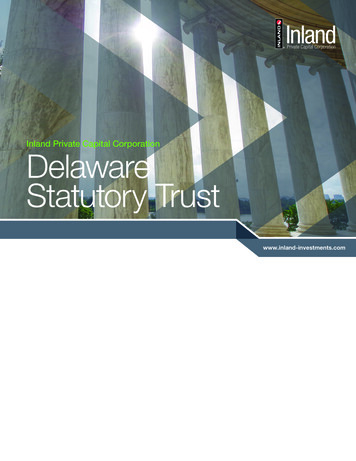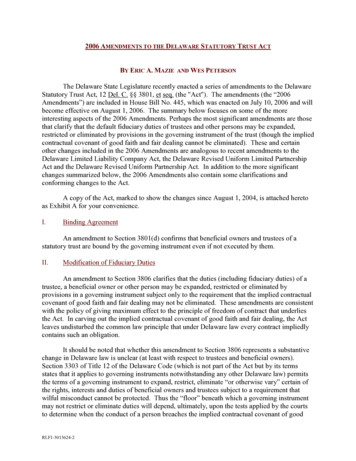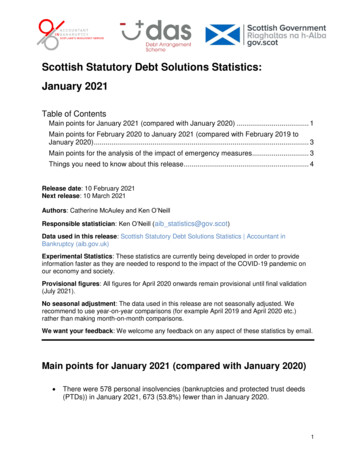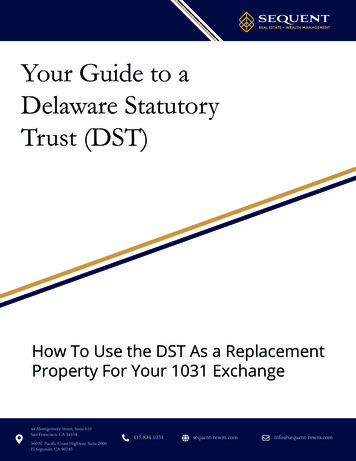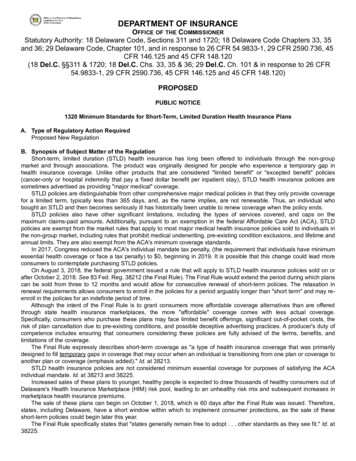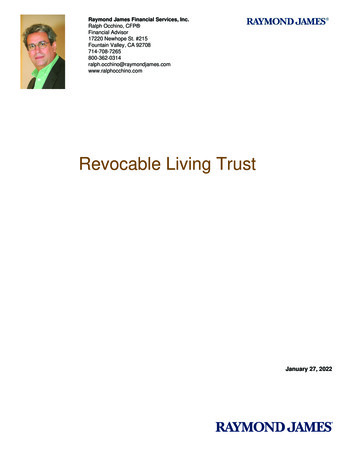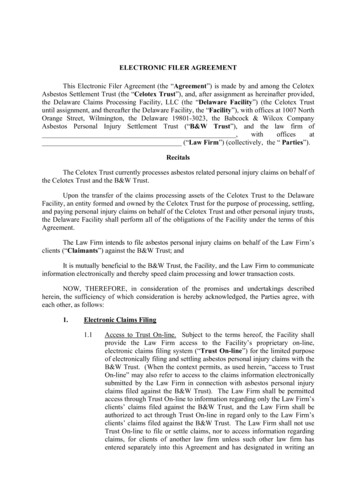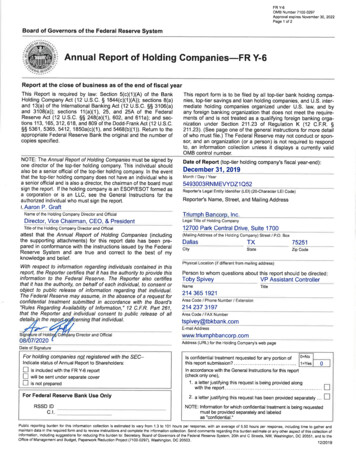
Transcription
Delaware Statutory Trusts in Like-Kind Exchanges under IRC §1031An Executive SummaryJune 2021IntroductionA statutory trust (sometimes referred to as a “business trust”) is a legal entity, created by a trustinstrument under a specific state law, that holds assets on behalf of the trust’s beneficial owners. Theterm “statutory” refers to the formal recognition and regulation of such entities by the legislatures ofseveral states. An existing group of investors can form a statutory trust, but the structure is betterknown for funds seeking to raise outside capital. Statutory trust shares can be sold as registeredsecurities or private placements.Before receiving statutory recognition, modern common-law business trusts originated inMassachusetts to avoid then-existing prohibitions against corporations acquiring or developing realestate. i Indeed, the IRS tax designation “Real Estate Investment Trust” derives from the historic use ofbusiness trusts to form REITs, even though most REITs today are structured as corporations. ii Commonlaw business trusts had to rely on a complex body of case law to guide their actions. After decades ofoperating under relative legal uncertainty, business-trust sponsors received legislative relief inDelaware, a leading state in corporate formations.Delaware Statutory Trust ActThe Delaware Statutory Trust Act (the “Act”) was passed in 1988. The Act, and similar acts in otherstates, addressed some of the risks of the common law business-trust structure, including potentialliability for trustees and possibly unfavorable tax treatment. As with Delaware LLCs and limitedpartnerships, the Act gave Delaware Statutory Trusts (“DSTs”) “maximum effect to the principle offreedom of contract and to the enforceability of governing instruments.” iii The Act also granted DSTsflexible control over their governance and operations.Key features of a DST include: iv Limited personal liability of beneficial owners (as with corporate stockholders)Authority to delegate management functions among the trust parties or to third partiesAbility to create separate portfolios or series within the trust“Bankruptcy remote” protections from creditors of beneficial ownersSince 1988, DSTs have become a favored form of statutory trust. As a result, DSTs now are used as theunderlying business entity for multiple types of investment vehicles beyond REITs, includingcollateralized mortgage obligations, mutual funds, closed-end funds and of course, §1031-qualifiedproperties with hundreds of beneficial owners.1
IRC §1031-Qualified Delaware Statutory Trusts (“1031 DSTs”)OverviewAlthough many investors unknowingly own DST interests through a mutual fund, they often becomeaware of DSTs by investing in real estate structured as “1031 DSTs”. These are statutory trusts thatostensibly qualify as like-kind real estate for purposes of completing a tax-deferred exchange underInternal Revenue Code §1031. Specifically, 1031 DSTs offer the ability to reinvest equity from a rental orbusiness property into beneficial interests of one or more portfolios of real estate on a passive basis.A 1031 DST is the only instance of indirect ownership allowed under §1031 regulations, as the name ofthe investor (i.e., an individual, trust or LLC) conducting the §1031 exchange is not recorded on legal titleto the replacement property. Rather, the fractional owner receives a letter of beneficial interest in theDST, which is the sole recorded owner of its property.Institutional real estate operators, through affiliates, sponsor and manage the majority of 1031 DSTs.The seven largest sponsors of 1031 DST programs have a combined two-thirds market share. v Investorsrely entirely on these operators, as interest holders have virtually no participation in the daily orstrategic management of the trusts. As beneficial owners, however, they are entitled to their pro ratashare of any appreciation, depreciation and distributable income.Syndication and Investing1031 DSTs are
operating under relative legal uncertainty, business-trust sponsors received legislative relief in Delaware, a leading state in corporate formations. Delaware Statutory Trust Act . The Delaware Statutory Trust Act (the "Act") was passed in 1988. The Act, and similar acts in other states, addressed some of the risks of the . common law
